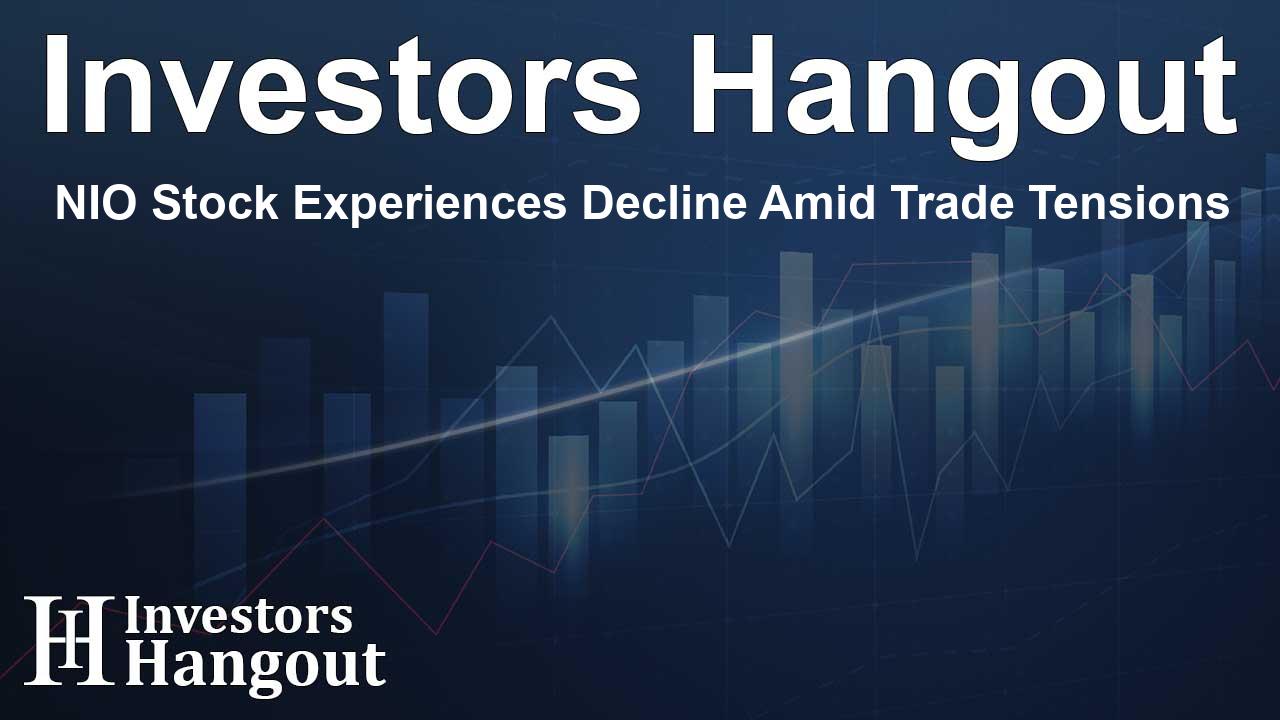NIO Stock Experiences Decline Amid Trade Tensions
NIO Inc. (NASDAQ: NIO) has seen its shares drop recently, mirroring the trend of other US-listed Chinese stocks. The catalyst behind this decline stems from the introduction of new port fees as a reaction to growing trade tensions.
Understanding the Recent Port Fee Changes
With the U.S. and China implementing new port fees, the escalation of economic frictions has raised concerns among investors. The fees require U.S.-owned, operated, built, or flagged vessels to incur charges that align with those introduced by the U.S. government.
China’s Justification for New Fees
The Chinese government has indicated that these fees aim to defend its shipping industry against what it labels as discriminatory U.S. actions. They believe this move is necessary to ensure fair play in international shipping.
Tension Increases with Additional Tariffs
In light of these developments, U.S. tariffs on Chinese goods may see an increase, adding to the already strained relationship. This situation is being monitored closely, particularly as it relates to NIO's stock performance.
Impact of Trade Policies on NIO
The new policies have not only affected NIO but also the overall sentiment regarding Chinese stocks within the U.S. market. As a prominent player in the electric vehicle sector, any adverse developments could significantly impact NIO's operations and stock value.
Current Market Performance of NIO
As of the latest trading session, NIO shares are down 3.41%, trading at $6.93. This reflects a broader decline in the performance of technology and automotive stocks influenced by recent geopolitical events.
Future Outlook for NIO
Investors should remain vigilant as trade negotiations continue and keep an eye on announcements from both administrations. The potential meeting between U.S. President and Chinese officials may bring some clarity to the situation, but uncertainty is likely to linger in the near term.
Conclusion on NIO’s outlook
The intersection of trade policies and stock performance for companies like NIO is critical to understand for potential investors. The current climate suggests that navigating through these changes will require adaptability and awareness of international market dynamics.
Frequently Asked Questions
What caused the decline in NIO's stock?
NIO's stock decline is primarily due to newly implemented port fees between the U.S. and China, along with rising trade tensions.
How do new port fees affect NIO?
The new port fees increase operational costs for shipping, which could impact NIO's supply chain and overall profitability.
What is the current price of NIO shares?
NIO shares are currently trading at approximately $6.93, reflecting a decrease of 3.41%.
What can investors expect moving forward?
With ongoing trade negotiations, investors can expect continued volatility in NIO's stock price depending on geopolitical developments.
Is there a meeting planned between U.S. and Chinese leaders?
Yes, plans are in place for a meeting between U.S. and Chinese leaders, aimed at discussing and easing current trade tensions.
About The Author
Contact Caleb Price privately here. Or send an email with ATTN: Caleb Price as the subject to contact@investorshangout.com.
About Investors Hangout
Investors Hangout is a leading online stock forum for financial discussion and learning, offering a wide range of free tools and resources. It draws in traders of all levels, who exchange market knowledge, investigate trading tactics, and keep an eye on industry developments in real time. Featuring financial articles, stock message boards, quotes, charts, company profiles, and live news updates. Through cooperative learning and a wealth of informational resources, it helps users from novices creating their first portfolios to experts honing their techniques. Join Investors Hangout today: https://investorshangout.com/
The content of this article is based on factual, publicly available information and does not represent legal, financial, or investment advice. Investors Hangout does not offer financial advice, and the author is not a licensed financial advisor. Consult a qualified advisor before making any financial or investment decisions based on this article. This article should not be considered advice to purchase, sell, or hold any securities or other investments. If any of the material provided here is inaccurate, please contact us for corrections.

